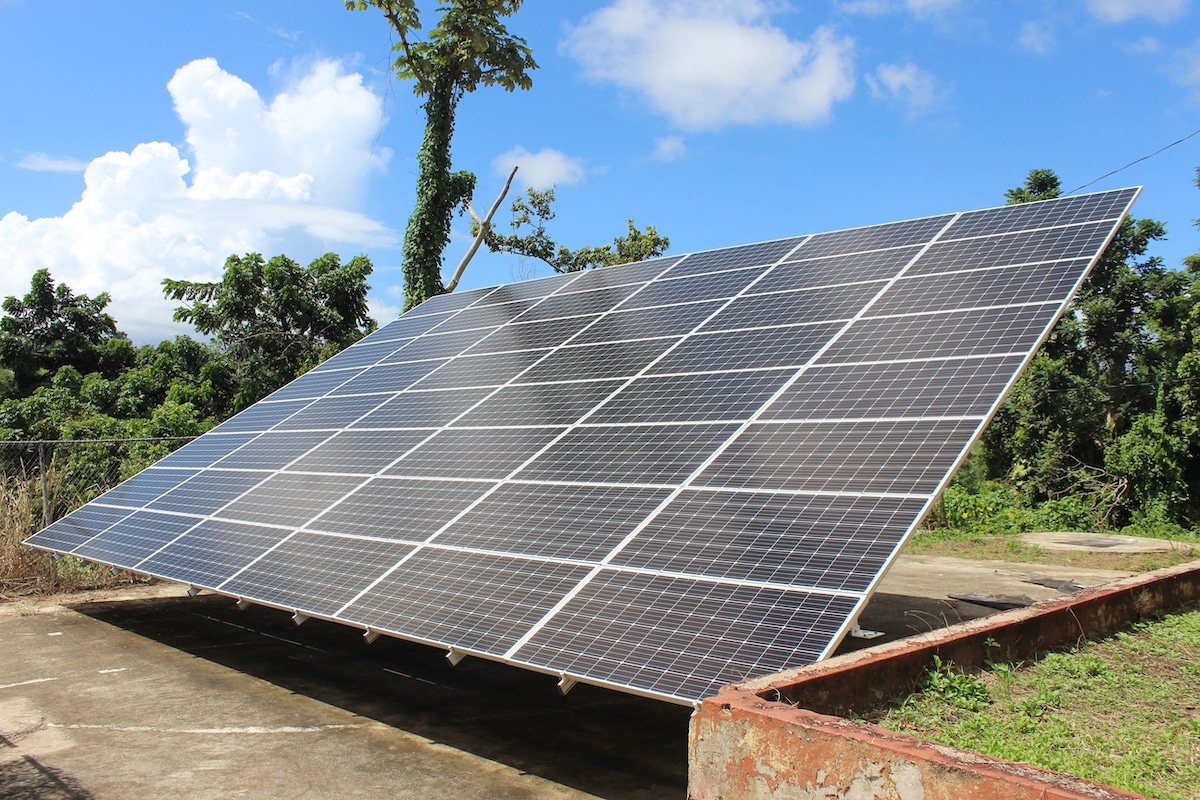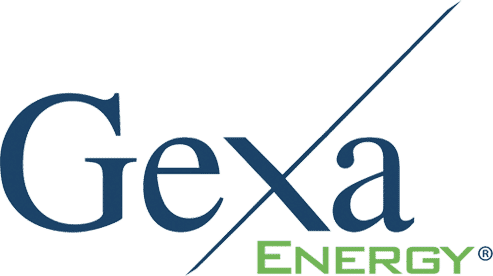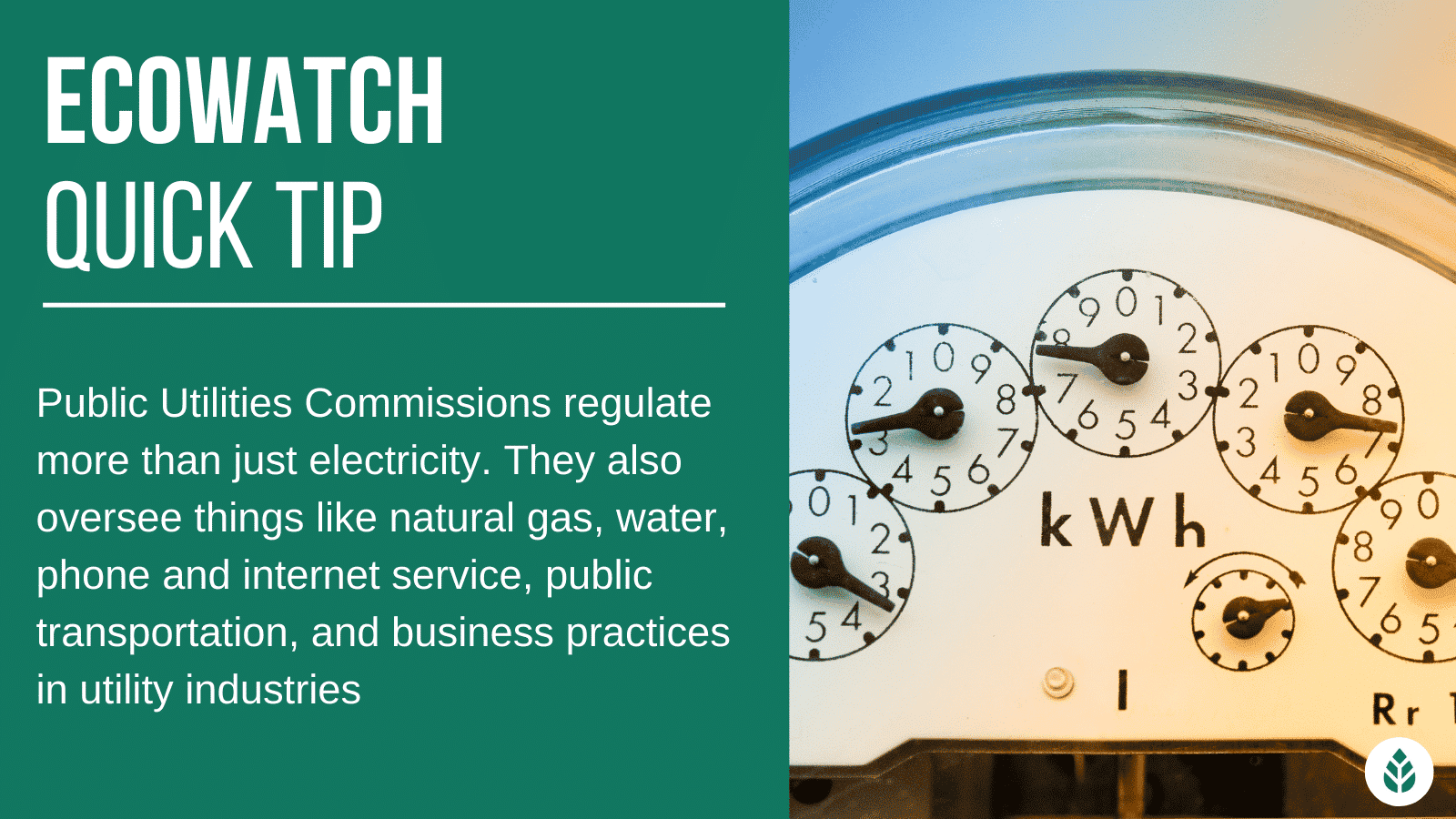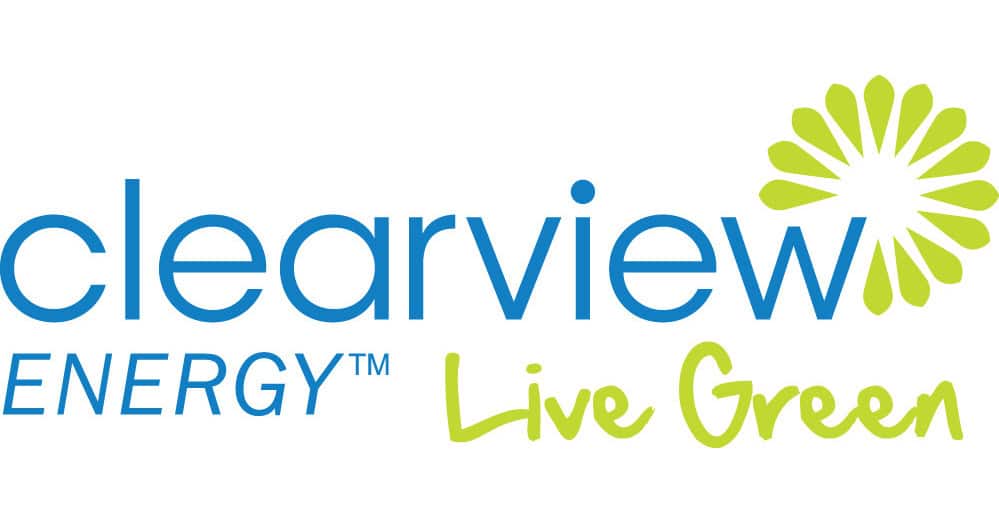

Public Utilities Commission: Who They Are & How They Affect Energy Prices
In this article, you’ll learn:
- What is the Public Utilities Commission?
- What does the Public Utilities Commission regulate?
- How does the PUC affect energy deregulation?
- And more
Each product and or company featured here has been independently selected by the writer. You can learn more about our review methodology here. If you make a purchase using the links included, we may earn commission.
Since 1977, the process of energy deregulation has been underway, and with it came an energy choice for consumers and increased competition between electric suppliers. However, a deregulated energy market requires a governing body to monitor business practices and control pricing and contract structures.
In response to the need for regulation, the Public Utilities Commission (PUC) was started. Each state has its own PUC that regulates the local energy market to some degree. Below, we’ll discuss what the PUC is, how it operates in each state, what it regulates and how it affects things like energy deregulation and renewable energy adoption.
What Is the Public Utilities Commission & What’s Its Purpose?
The Public Utilities Commission (PUC) — sometimes called the Public Service Commission (PSC) — is a regulatory body in the U.S. that helps maintain a healthy energy market. Each state has its own regulatory body, and while the PUC started to regulate energy markets in deregulated states, even states without energy deregulation have a PUC.
The purpose of the PUC is to protect residents from the potential drawbacks of energy deregulation. For example, it approves a maximum price for electricity so that utility companies aren’t free to charge any amount they want for services. This is particularly helpful during times of high demand and times of crisis when local electricity rates can skyrocket.
The PUC regulates other utilities as well, including wastewater management, telecommunications and natural gas. It also holds dockets and public meetings for resident input and public comment, and it maintains public records for all managed utilities.
If you’re looking for a new energy company and aren’t sure who to trust, you can click below to see rates from three of our top-recommended suppliers with renewable options.

Constellation Energy

Nationwide Service
Average cost
Pros
- Many years of experience
- Great industry reputation
- Award-winning company
- No.1 producer of carbon-free energy in the U.S.
- Makes charitable contributions
Cons
- Charges contract cancellation fees
- No prepaid or no-deposit plans

Gexa Energy

Statewide Service
Average cost
Pros
- Many years of experience
- Great industry reputation
- Makes charitable contributions
- Low rates
- Wide variety of contract term options
Cons
- Charges contract cancellation fees
- No prepaid or no-deposit plans
- Slightly high number of complaints versus competitors

Green Mountain Energy

Nationwide Service
Average cost
Pros
- Green-e certified plans
- Wide variety of contract term options
- Low number of customer complaints
- Many years of experience
- Makes charitable contributions
Cons
- Charges contract cancellation fees
- No prepaid or no-deposit plans
- No satisfaction guarantee
What Does the PUC Regulate?
The Public Utilities Commission (PUC) regulates many of the standard utilities residents need for their homes. We’ll discuss the specific utilities that are regulated by the PUC below.
Energy Prices
One of the most crucial things the PUC regulates is the maximum price for electricity. Without any regulation, energy companies could charge any price for power. As mentioned above, this can be detrimental for customers — especially those with variable-rate energy plans — when the energy supply is low, or demand is high. Individual electric companies still set their own prices to some degree, but all pricing is subject to approval by the PUC.
Business Practices in the Industry
The PUC also regulates business practices in the energy sector, and it does so primarily by receiving consumer complaints via public meetings or complaint hotlines and handling them accordingly. The PUC not only acts as a governing body for electric utility companies, but it also manages which companies are and aren’t permitted to provide electricity to homeowners. Under the threat of losing approval, companies are forced to act ethically.
Additionally, the PUC mandates assistance programs for low-income customers if required. This helps maintain fair and affordable energy pricing for all consumers.
Natural Gas
Similar to how the PUC regulates electricity suppliers, it provides consumer protection and price regulation for natural gas. All natural gas companies are subject to PUC approval to operate within state lines and use pipelines, and the PUC must also approve all proposed gas prices before they are charged to consumers.
Water
The PUC manages the water companies in your state as well, including water treatment plants, water providers and wastewater management companies. Pricing and ethical business practices are among the top priorities for water regulation by the PUC.
Phone and Internet Service
Just like with all other utilities, the PUC serves to protect consumers from unfair pricing and unethical business practices in the telecommunications sector, including phone service and broadband internet. The PUC works to balance what is fair and beneficial for both customers and utility providers.
Transportation Services
Finally, the PUC manages public transportation. It ensures that transportation rates for residents are fair, and it also works to guarantee that transportation companies provide safe and reliable equipment.
How Does the PUC Affect Energy Distribution?
In states that don’t yet have a deregulated energy market, there is often a standard service for electricity, which is a single company that provides energy distribution services for a given area within the state. In these states, the PUC regulates the standard service to ensure that prices for utility services are fair.
In states that do have deregulated energy markets, the process of energy distribution is a bit more complicated. There is an energy supplier, which generates the electricity, and then an energy distributor, which transports the produced energy to customers. In these states, homeowners have an electric choice and can select any energy supplier and energy plan that suits their needs and budget.
In deregulated states, the PUC not only controls what the energy producer charges to suppliers for electricity, but it also controls the maximum prices and contract terms offered to consumers. It promotes healthy competition through a small amount of regulation in order to benefit homeowners’ utility bills as well as the utility companies.
How Does the Public Utilities Commission Affect Clean Energy Efforts?
Another important role of the Public Utilities Commission in each state is setting clean energy standards. The PUC promotes renewable energy in a few distinct ways, which we’ll discuss in-depth below.
Control of How Local Utilities Get Energy
PUCs get to decide which sources of electricity are prioritized in each state. This means that, if the right commissioners are in power, they could make a big difference in pushing renewables forward.
Here’s a short video that gives an overview:
Renewable Portfolio Standards (RPS)
The PUC sets portfolio standard goals for energy companies. One of the most crucial goals is detailed in each state’s Renewable Portfolio Standard (RPS).
An RPS mandates that a specific amount of energy produced and used by the state be produced via clean energy sources, including solar power, hydroelectric power, wind power and biomass. In most cases, these goals include a specific target year by which a certain percentage of the state’s energy production must come from renewable energy sources.
Each state’s PUC dictates what the RPS goal is, and it’s based on what is reasonable, as well as where the current energy used by the state comes from. For example, the California Public Utilities Commission has an RPS goal of producing at least 60% of all energy in the state via renewable energy sources by 2030. Each PUC requires annual reports from every local utility company to ensure compliance.
Most states have more local Public Utilities Commissions as well, which can regulate energy sources, prices and contract options on a smaller scale. For example, the San Francisco Public Utilities Commission (SFPUC) is a regulatory body specifically in San Francisco. It can’t override decisions made by the state PUC, but it can implement things like stricter regulations for renewable energy goals on a more local level to help meet state goals.
Net Metering Tariffs
Additionally, the PUC puts in place rules regarding net metering and how consumers with distributed generation systems — like rooftop solar systems — are compensated for excess energy production. Net metering is one of the most beneficial programs in place for solar energy, and it makes going solar well worth the investment in many states.
For example, the Maine Public Utilities Commission mandates that all excess energy produced by a rooftop photovoltaic system be credited to the customer’s account and remain available for use. This helps residents offset electricity costs and maximize energy savings by converting to solar power.

 233k
233k  41k
41k  Subscribe
Subscribe 






